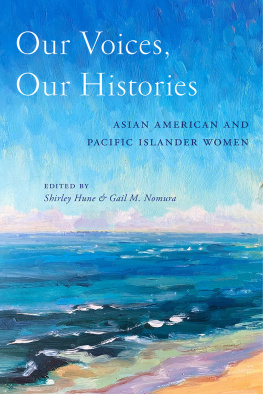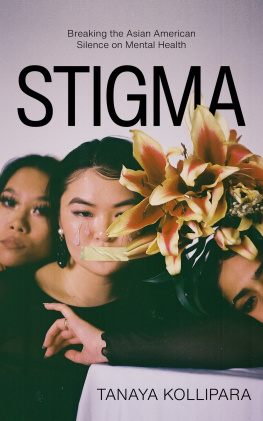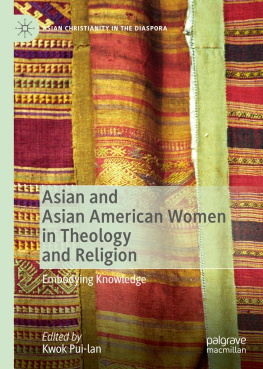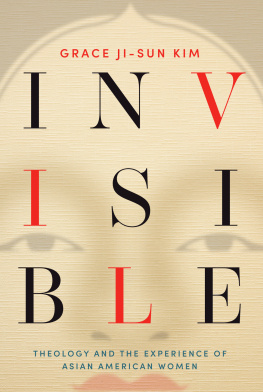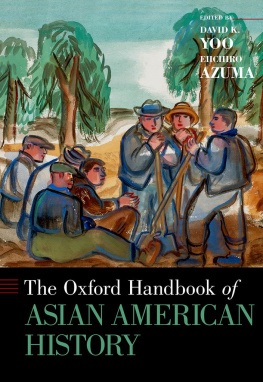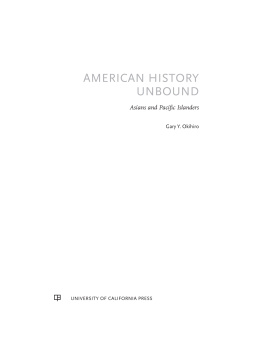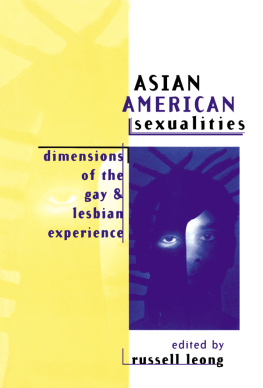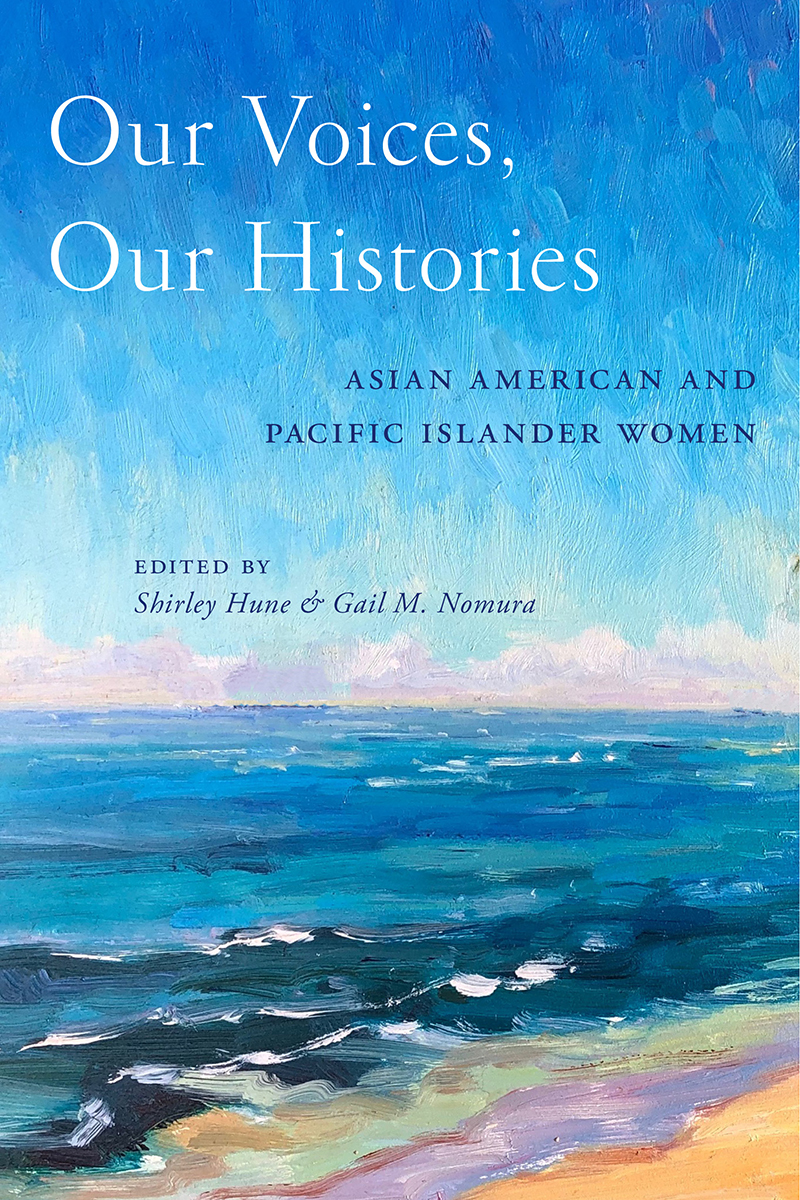
Our Voices, Our Histories
Our Voices, Our Histories
Asian American and Pacific Islander Women
Edited by Shirley Hune and Gail M. Nomura

New York University Press
New York
NEW YORK UNIVERSITY PRESS
New York
www.nyupress.org
2020 by New York University
All rights reserved
References to internet websites (URLs) were accurate at the time of writing. Neither the authors nor New York University Press is responsible for URLs that may have expired or changed since the manuscript was prepared.
Library of Congress Cataloging-in-Publication Data
Names: Hune, Shirley, author. | Nomura, Gail M., author.
Title: Our voices, our histories : Asian American and Pacific Islander women / Shirley Hune and Gail M. Nomura.
Description: New York : New York University Press, [2019] | Includes bibliographical references and index.
Identifiers: LCCN 2019009449| ISBN 9781479821105 (cl : alk. paper) | ISBN 9781479877010 (pb : alk. paper)
Subjects: LCSH : Asian American womenHistory. | Pacific Islander American womenHistory. | Asian American womenBiography. | Pacific Islander American womenBiography. | Asian American womenSocial conditions. | Pacific Islander American womenSocial conditions.
Classification: LCC E184.A75 H895 2019 | DDC 305.48/895073dc23
LC record available at https://lccn.loc.gov/2019009449
New York University Press books are printed on acid-free paper, and their binding materials are chosen for strength and durability. We strive to use environmentally responsible suppliers and materials to the greatest extent possible in publishing our books.
Manufactured in the United States of America
10 9 8 7 6 5 4 3 2 1
Also available as an ebook
For Asian American and Pacific Islander women
S. H. and G. M. N.
For the fourth and fifth generations of Hunes,
Karen, Brandon, Bryan, Lindsay, Christie, Nicholas, Julia, Andrew, Allison;
Christopher, Laura, Dan, Luke, Charlie, Aliya, Morgan, Mackenzie, Owen, Hazel,
Astrid, Freja, and those to come
S. H.
For Tsuma Nomura, Ushii Kunimitsu, Leatrice S. Nomura, Emi, Clare, and Alice Suzuki, and those to come
G. M. N.
Contents
Gail M. Nomura
Shirley Hune
Davianna Pmaikai McGregor
Erika Lee
Masako Iino
Dawn Bohulano Mabalon
Phonshia Nie
Mana Hayakawa
Christine R. Yano
Cathy J. Tashiro
M. Luafata Simanu-Klutz
Alice Yang
Yn L Espiritu
Linda Trinh V
Krittiya Kantachote and Rhacel Salazar Parreas
Margaret M. Chin
Maria W. L. Chee
Joy Sales
Sharleen Santos-Bamba and Anne Perez Hattori
Judy Tzu-Chun Wu
Trinity A. Ordona
Monisha Das Gupta and Soniya Munshi
Kimberly D. McKee
Nazli Kibria
Halaevalu F. Ofahengaue Vakalahi and Ofa Kuulei Lanimekealoha Hafoka
Barbara W. Kim and Grace J. Yoo
Chia Youyee Vang
Shirley Suet-Ling Tang, Kim Soun Ty, and Linda Thiem
Shirley Hune and Gail M. Nomura
Our Voices
Gail M. Nomura
Our Voices, Our Histories: Asian American and Pacific Islander Women brings together thirty-five Asian American and Pacific Islander authors in a single volume to explore the historical experiences, consciousness, and actions of Asian American and Pacific Islander women in the United States and beyond. It examines the intersections of race, gender, class, sexuality, indigeneity, ethnicity, and other aspects of the lives of these women. Through the voices and lives of the women themselves, these works foreground the agency, power, and resilience of Asian American and Pacific Islander women and their capacity to enact change and transform their lives and communities within local, transnational, and global contexts.
In addressing the diverse histories of Asian American and Pacific Islander women in this anthology, the editors recognize the heterogeneity within and between these socially and politically constructed panethnic umbrella groupings. We do not seek to subsume, obliterate, or obscure their distinctiveness but to expand the research and the interpretative boundaries leading to new ways of understanding a complex, richer history of the United States. In addition to the many possibilities of dialogue, alliances, and connections through differences we also seek to explore commonalities and shared agendas without perpetuating or reinscribing the same hierarchies and exclusions that have sometimes marred such projects. Effective coalition-building constructs a shared agenda that is a work in progress, constantly negotiated and debated. It requires continuous interchanges to explore boundaries, frontiers, and borderlands of interactions and separations to open new conversations and collaborations.
This book is a step toward exploring these interactions and separations, which will enable readers to begin to question and push theoretical constructs and interpretations beyond the analyses of single ethnic groups. It will also allow readers to more deeply consider the power of individual intentional action within, at times, seemingly overwhelming limits and constraints. The selections present new research that studies diverse aspects of Asian American and Pacific Islander American womens history while acknowledging shared experiences as women of color in the United States. The authors bring fresh, alternative insights, ways of knowing, analyses, and narratives as well as research sources, approaches, and strategies. In this way, they reveal the agency, resistance, and resilience of Asian American and Pacific Islander women in all their diversity and, in the process, a new understanding of womens history.
Diversity
The Asian American and Pacific Islander women presented in this anthology comprise diverse groups of peoples of many cultures, ethnicities, languages, and religions that have a history with the United States. Diversity within and between groups is a key point to remember.
Asian American is a socially and politically constructed panethnic umbrella term emerging out of the social movements of the 1960s and early 1970s in the United States. It generally refers to immigrants and US-born people of Chinese, Filipino, Japanese, Korean, Mongolian, South Asian (e.g., Bangladeshi, Bhutanese, Indian, Maldivian, Nepalese, Pakistani, Sri Lankan), Southeast Asian (e.g., Burmese/Myanmarese, Hmong, Indonesian, Khmer/Cambodian, Lao, Malaysian, Mien, Singaporean, Thai, Vietnamese), Taiwanese, and Tibetan ancestry, among others. Some may expand the term to include peoples of Asian descent in all the Americas, and others have defined Asian as comprising peoples from the entire geographical region of Asia including West Asia/the Middle East.
Pacific Islander and Pacific Islander American are socially and politically constructed terms designating US-born and immigrant people who have ancestry among the indigenous peoples from OceaniaMicronesia, Melanesia, and Polynesia. Most Pacific Islanders subscribe to a distinct island-based indigenous identityfor example, Native Hawaiian, Smoan, Chamorro, Tongan, Fijian, or Morirather than to a panethnic identity. Pacific Islanders see clear sociocultural, political, and historical distinctions between and among different islander groups. However, the panethnic terms have come into use in recent years to forge a panPacific Islander identity and coalitions, notably in the continental United States, while maintaining island-based identities.
Next page
